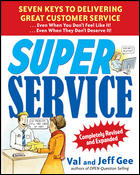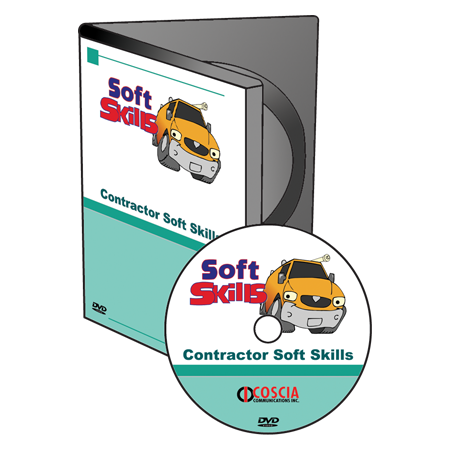Selling in Today’s Retail Environment: Sour Grapes




With today’s aggressive and tech savvy consumers, selling requires a much more sophisticated approach. Any wrong statements will send them back to the national chains or home centers with their deceiving offers. Traditional “Greeting, qualifying, presentation, overcoming objections and closing” are of little help in improving sales performance. These so-called sales skills always seemed to me as coming off as “scripted” to our customers and sounding like something we do tocustomers rather than something we do forthem.
Our industry has gravitated toward some weird sales approaches brought to you by the sales gurus of the moment. One of the most confusing was the FAB system from IBM. FAB was “Feature, Advantage, Benefit,” and directed the salesperson to explain what a product was, what it does and the benefit to a particular customer’s needs. This rendered salespeople awkward in their sales interview by attempting to get it straight and as a result, they lost customers.
We have wasted time and money bringing charlatans into our industry with their useless theories on how to sell. Whenever I travel I sit in on as many sales seminars as I can. Many sales trainers embraced the idea of teaching psychological profiling of each customer demanding that salespeople sell individuals according to their “profile.”
Upon leaving these presentations, I often hear retailers lamenting: Now I have to have a Ph.D. in psychology to train my people.
Another sales trainer’s main tactic was to exclaim to every customer: “Come on, go with me, I’ll show you how it’s done!” No wonder retailers are skeptical about the efficacy of sales training.
I have always offered a full refund on any of my sales education materials to retailers and salespeople who weren’t satisfied; more than 27 years and 25,000 copies sold, and only one customer ever wanted a refund. That person was head of a sales training program and must not have agreed with these universally accepted sales education methods.
What are these proven methods and where did I find them? My sources were books written by sales geniuses that didn’t just write a million dollars a year, but made a million dollars a year. Salespeople like Joe Girard, who made a million a year selling Chevrolets in Detroit.
In reading these books, a common thread was the authors stated they talked about everything except what they were selling. When giving sales seminars in our industry I have always asked who in the audience wrote a million a year—which was my goal for every person who followed me—and one or two hands will usually go up.
During breaks or at lunch, I would interview these elite salespeople and ask how many others worked the floor with them? Followed up with: “Why did they believe they managed to sell so much more?” The answer was, “The other salespeople thought I was lucky.”
Oh sure, year after year the million dollar producer was “just lucky.”
The real answer is that these elites are able to make an intimate connection with their customers—in other words, human skills, which is what I teach.
Not all salespeople accept my knowledge right away. It’s difficult to change methods you’ve been taught through the years, especially if it came from daddy. A wonderful story came from a retailer in Phoenix who put his sales staff through my 13-week DVD training program. Of his 10 salespeople, only one—the only woman on the staff—worked on putting my methods into practice and very soon her sales production doubled. Upon seeing the result, those who rejected my methods came to the owner and asked that they do the program again.
As a retailer, I always wanted to know what the competition was doing by interviewing customers, sending in shoppers and actually going to other flooring stores myself. An old business adage is: “Always know what your competition is doing, but never fear them.”
Information you can use comes from many sources. A manufacturer investigating a best-selling retail wood product sold in a national chain found that as much as half the wood in a box was virtually unusable; a local retailer who used some of the same installers as the home centers was surprised by the huge pieces of carpeting left over from their jobs these installers brought in for binding, which among other things, proved the boxes vastly over-measured; almost all advertised sales came with a caveat requiring customers to purchase a certain product and, with carpet, buy a specific pad that carried a mark-up that more than covered the “freebies”—in fact the carpet was less expensive when not on sale, and another home center guarantees to be 10% lower than the competition if the customer brings in written paperwork. Problem is, with private labeling, no customer can actually shop the same product—but it sounds good.
These are situations that all of us must to be able to handle. No retail store can afford to lose a single customer. Once you know what the competition is doing, you would think it would be easy to convert the customer. Wrong!
She is looking for the ultimate bargain and these sales look so good, they are hard to resist; so why should she believe you? The only reason to believe you is if she trusts you.
How do we make up our minds on who to trust? It’s whether we like the person trying to sell us the product. This ability to have others like you is the most powerful sales tool of all. If you haven’t built trust, everything you say about the competition is just “Sour Grapes.”
An owner of multiple stores in New England until 1985, Warren Tyler had a desire to share his retail and sales success with the industry. His career as a columnist, sales educator and consultant has produced hundreds of top retailers, every major merchandising group as well as dozens of distributors and mills as clients—winning accolades from even his peers. He is the author of several top-selling industry books, CDs and DVDs, and is available for keynotes and sales seminars. (804) 384-7588 warren@professionalspeaker.net
Looking for a reprint of this article?
From high-res PDFs to custom plaques, order your copy today!











